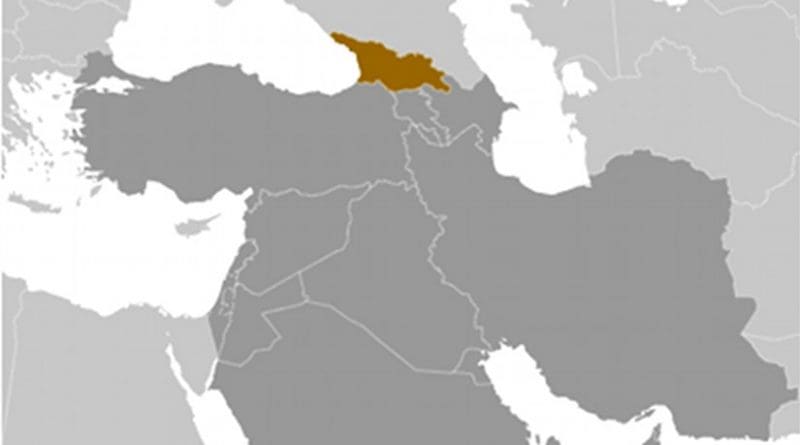Georgia: Evictions Or Integration?
By Evolutsia
The Georgian government has publicly stated that the goal for its IDP population is integration. But IDP advocate Eka Gvalia wonders how is integration being achieved by the latest round of IDP evictions.
By Eka Gvalia
Georgia has been managing the problems and challenges of a large IDP population for 18 years. And in all that time, relations between the government and the IDP community remain disjointed and overly complicated. While there have been a number of major issues over the years regarding IDPs’ shelter, healthcare, education, and employment that required urgent attention, the truth is that IDP issues have been of little interest to much of the public until the August 2008 war.
Today, after the Georgian government followed through on plans to evict IDP residents from temporary shelters, IDP rights suddenly became breaking news. Unsurprisingly, a number of political parties spontaneously and coincidentally discovered an interest in IDP issues and have begun “advocating” for the rights of IDPs. From my professional and personal experience, unless something tragic and/or dramatic happens to IDPs (e.g. eviction scenes, self-immolations, etc.), few remember that these are people who have been continually struggling with great hardship for almost two decades.
But the recent IDP evictions have raised fresh awareness among Georgians of the tragedy and complexity of the situation. In a quest for understanding, most people ask — have IDP rights been violated? Are the IDPs protected? Will IDPs ever be integrated? The answers to these questions are crucial to all IDPs, regardless of whether or not they will be evicted from their shelters.
According to the Georgian government, the eviction process will provide IDPs with durable housing solutions and boost their integration into mainstream Georgian society. While this makes for a good pronouncement, is this objective realistically achievable through the current approach? It is good to start living in newly refurbished and rehabilitated apartments, but what comes next? The new apartments are mostly located in remote areas of the country where there are limited work and income generation opportunities. While the Ministry of Internally Displaced Persons from the Occupied Territories, Accommodation and Refugees of Georgia (MRA) stated that they will be providing land for agricultural activities to IDPs, not all IDPs will benefit from this approach. In particular, IDPs resettled in the newly-constructed IDP settlements in Shida Kartli and Mtskheta-Mtianeti regions are being provided with agricultural land, but IDPs settled in Potskho-Etseri, Samegrelo will not. Unfortunately, IDPs displaced by the 2008 war are not being treated equally by the MRA.
According to the MRA, 10,000 IDP families in Tbilisi have been provided with durable housing solutions and their collective centers have been rehabilitated and privatized. While this should be considered a positive achievement by the government, what will happen to other families still living in the Tbilisi collective centers? These IDPs regularly visit our offices and ask questions about what the government intends to do with their collective centers. Will they too be privatized? Or will they be resettled outside Tbilisi in Poti or Potskho-Etseri or someplace else?
IDPs that have been living in Tbilisi and other cities for the last 18 years understandably feel quite at home in their communities. They have established networks, made friends, found employment, have access to services, and have generally found a place in society. This is integration. Clearly, it sends mixed messages for the government to publicly endeavor for social integration while uprooting longtime residents and exporting them to far flung settlements to again begin anew.
Georgia’s IDPs are asking these questions about their futures, but the answers remain hopelessly unclear. There is limited communication between IDPs and the MRA, which makes the housing process needlessly complicated and confrontational. IDPs receive notices from the MRA that they will be evicted within 10 days, but with no mention of any concrete dates on the notices. IDPs have no information about with whom they should contact regarding their resettlement. IDPs have the number of the MRA hotline but they have no access to it as the line is apparently permanently busy.
It’s no surprise that the IDP community feels confused and unprotected. If the Georgian government hopes to retain credibility on the management of the IDP situation, it should recommit to its own stated goals of integration. Perhaps a good place to begin would be for the MRA to improve its communication with the IDP community and help them regain some measure of normalcy in their lives.
Eka Gvalia is an IDP rights advocate and the Executive Director of Charity Humanitarian Centre “Abkhazeti” (CHCA), the premier NGO for IDP issues in Georgia. She graduated from Sukhumi State University where she also has taught as a lecturer of Business English. Gvalia, herself an IDP, was born in Sukhumi, Abkhazia and now lives in Tbilisi.

